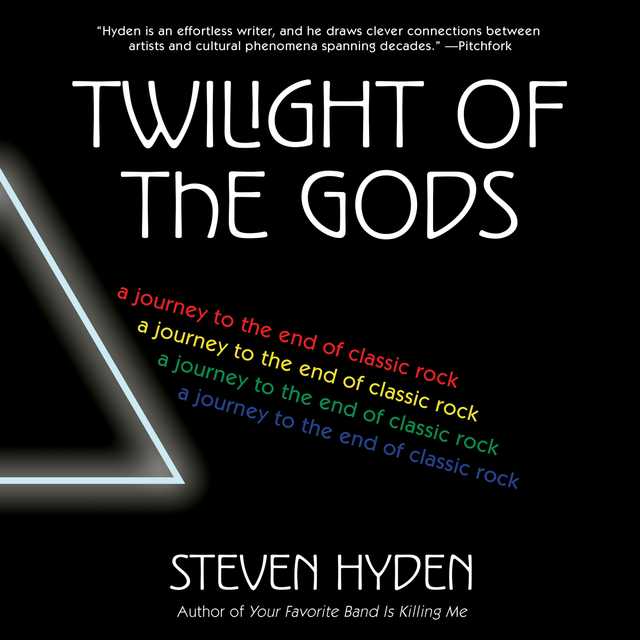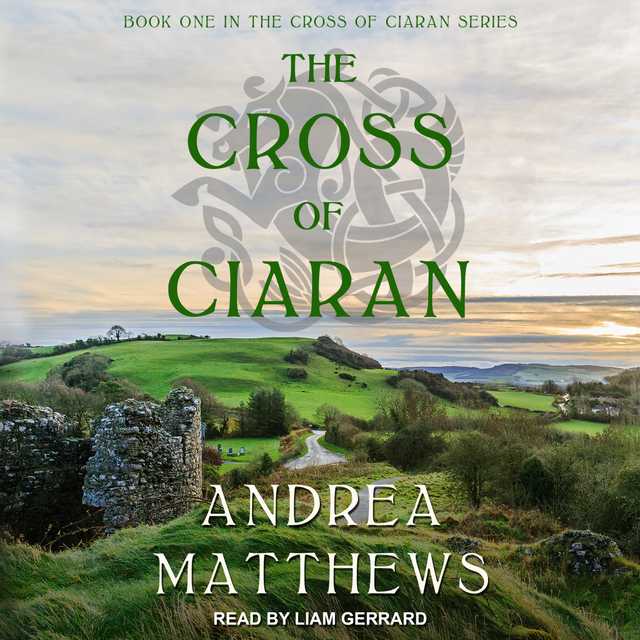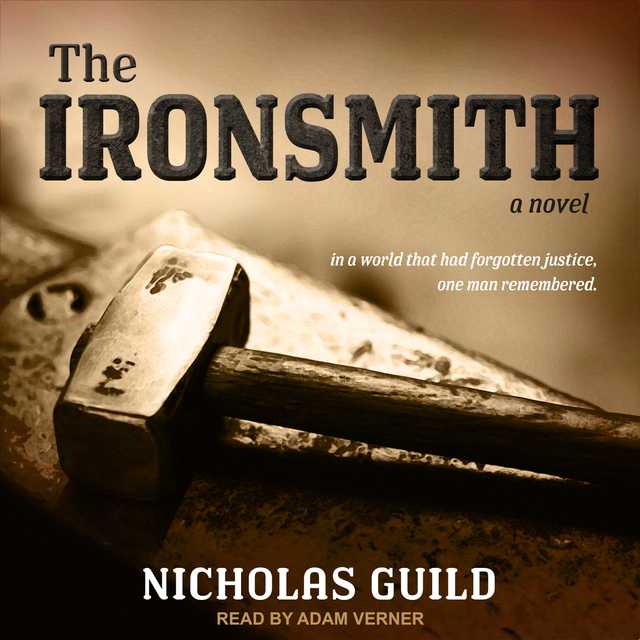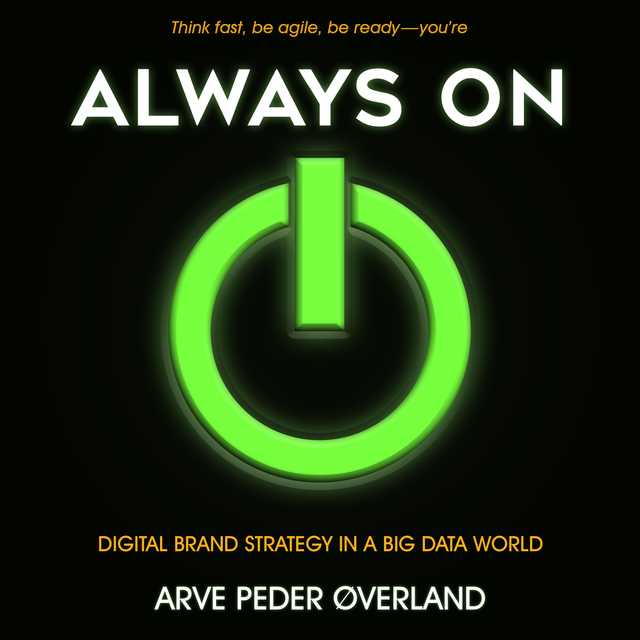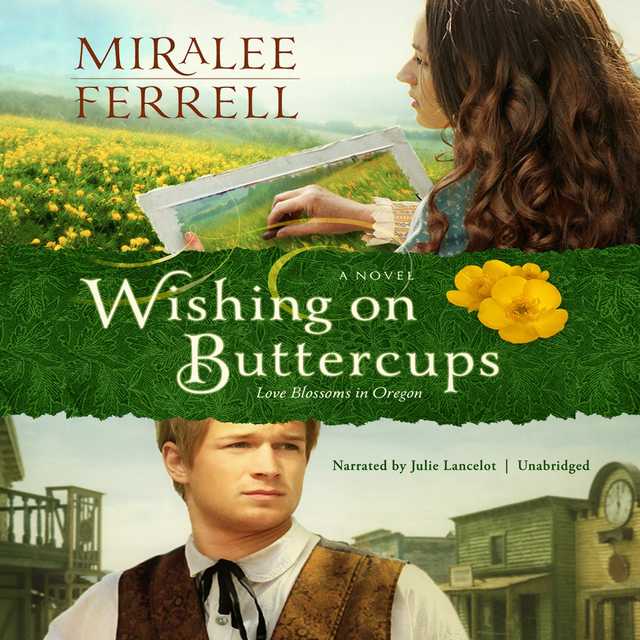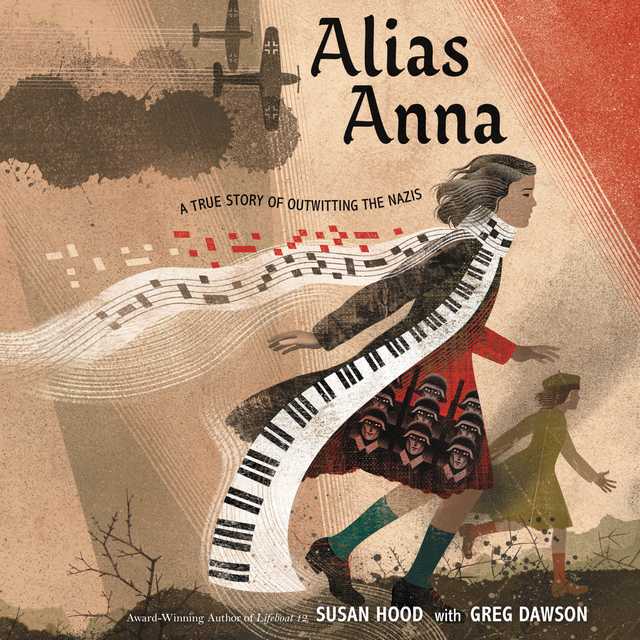Twilight of the Gods Audiobook Summary
The author of the critically acclaimed Your Favorite Band is Killing Me offers an eye-opening and frank assessment of the state of classic rock, assessing its past and future, the impact it has had, and what it’s loss would mean to an industry, a culture, and a way of life.
Since the late 1960s, a legendary cadre of artists–including the Rolling Stones, Bob Dylan, Neil Young, Bruce Springsteen, Fleetwood Mac, the Eagles, Black Sabbath, and the Who–has revolutionized popular culture and the sounds of our lives. While their songs still get airtime and some of these bands continue to tour, its idols are leaving the stage permanently. Can classic rock remain relevant as these legends die off, or will this major musical subculture fade away as many have before, Steven Hyden asks.
In this mix of personal memoir, criticism, and journalism, Hyden stands witness as classic rock reaches the precipice. Traveling to the eclectic places where geriatric rockers are still making music, he talks to the artists and fans who have aged with them, explores the ways that classic rock has changed the culture, investigates the rise and fall of classic rock radio, and turns to live bootlegs, tell-all rock biographies, and even the liner notes of rock’s greatest masterpieces to tell the story of what this music meant, and how it will be remembered, for fans like himself.
Twilight of the Gods is also Hyden’s story. Celebrating his love of this incredible music that has taken him from adolescence to fatherhood, he ponders two essential questions: Is it time to give up on his childhood heroes, or can this music teach him about growing old with his hopes and dreams intact? And what can we all learn from rock gods and their music–are they ephemeral or eternal?
Other Top Audiobooks
Twilight of the Gods Audiobook Narrator
Patrick Lawlor is the narrator of Twilight of the Gods audiobook that was written by Steven Hyden
Steven Hyden is the author of Your Favorite Band Is Killing Me. His writing has appeared in the New York Times Magazine, Washington Post, Billboard, Pitchfork, Rolling Stone, Grantland, The A.V. Club, Slate and Salon. He is currently the cultural critic at UPROXX, and the host of the Celebration Rock podcast. He lives in Minnesota with his wife and two children.
About the Author(s) of Twilight of the Gods
Steven Hyden is the author of Twilight of the Gods
More From the Same
- Author : Steven Hyden
- This Isn’t Happening
- Long Road
- Your Favorite Band Is Killing Me
- Publisher : HarperAudio
- Abraham
- American Gods [TV Tie-In]
- Dead Ringer
- House of Sand and Fog
- Prey
Twilight of the Gods Full Details
| Narrator | Patrick Lawlor |
| Length | 10 hours 56 minutes |
| Author | Steven Hyden |
| Category | |
| Publisher | HarperAudio |
| Release date | May 08, 2018 |
| ISBN | 9780062797810 |
Subjects
The publisher of the Twilight of the Gods is HarperAudio. includes the following subjects: The BISAC Subject Code is Genres & Styles, Music, Rock
Additional info
The publisher of the Twilight of the Gods is HarperAudio. The imprint is HarperAudio. It is supplied by HarperAudio. The ISBN-13 is 9780062797810.
Global Availability
This book is only available in the United States.
Goodreads Reviews
Jack
July 19, 2018
Hey hey, my my... Rock and roll will probably dieIt doesn't matter if you burn out or fade awayBecause we all die, oh yeahNeil Young once said something like that?Steven Hyden isn't the first person to notice the curious fascination classic rock has with time and death. But what makes "Twilight of the Gods" special is that, as a member of Generation X, Hyden came to Led Zeppelin, Pink Floyd, Springsteen, Bob Seger, et al as someone "out of time," a kid who thought this stuff was eternal, that it represented a sort of high watermark for music that would last long after the pop fluff of the contemporary moment has drifted away on the breeze...We see now, of course, that rock is not eternal. The stars themselves, for one, keep literally dying. In the past couple of years, we've lost Bowie, Prince, Tom Petty, Glenn Frey, and fucking Lemmy. It seems like it's been a rough stretch, until you think about all the geriatric rockers who are still with us. The Stones (most of em), Paul and Ringo, Simon and Garfunkel, Bob Dylan, Ray Davies, Page and Plant and JPJ, Roger Daltrey and Pete Townshend... Though they probably all should be dead, they continue to record, tour, and plagiarize Cliffnotes for Nobel Prize speeches. How much longer do any of them have?Classic rock has shown to be mortal in a metaphorical sense, too. In the past couple of decades, page after page of smart, well-intentioned criticism has set out to delegitimize the "classic rock" idea, showing how the genre was essentially created by radio execs to sell merchandise to an aging populace, how it was designed to exclude artists of color and women, how its appeal has notoriously been for the lunkheaded homophobe set (see the awful "Disco Demolition Night"), how most of the music's greatest practitioners are, to put it lightly, cruel and self-absorbed billionaire junkie brats who sleep with ten year olds, how the whole thing is, at best, kind of phony and dumb, and at worst, perniciously reactionary.I came to classic rock in a way not unlike Mr. Hyden. When I was beginning to break free from my parent's stifling regime of 80s and 90s pop country (much of which, in retrospect, rules (thanks mom and dad)), I was kind of alarmed by what was on the radio. Truly, the pop and rock of the early 2000s was even sillier and shittier-sounding than Tim McGraw. I found refuge in earlier tymes. The Beatles opened my eyes to a whole separate way of being. Zep immediately followed, and then Pink Floyd, and then the Doors, and then Nirvana. This was the stuff that seemed REAL, the stuff made by true artists, the stuff that would last. It had style, it was played by people who had "talent" (oh how obsessed I was with "talent"), it was where I wanted to spend the rest of my life. Because it wasn't just music. It was CLASSIC ROCK.Well you grow up and you read about things and you talk to women and you realize that nothing about, oh, "Won't Get Fooled Again" is objectively better than, say, "Spice Up Your Life" (one graciously takes less than TEN MINUTES to make its point). I'm tempered my enthusiasms for the myths and ideas and guitar riffs of mid-period rock and roll-- I've incorporated hip-hop and electro and disco and girl groups and so many New Yorker articles about, you know, how that stuff matters, white man. But the rock music of the 60s and 70s is still, nevertheless, my chief occupation in life. So I related to "Twilight of the Gods" completely, and read it in, like, a day. It was hard to stop. It was like reading myself, as described by Black Sabbath songs.So familiar was "Twilight of the Gods," that, well, I sometimes wondered what its purpose is. The majority of the book is a retelling of the fables of rock, stories that most of the Hyden's readers (i.e. people who will vouch passionately for the merits of "The Crunge") will have already heard dozens of times (Altamont, Dylan "going electric," something about a mud shark, eww). Indeed, the artists he discusses most are artists who have hundreds of books written about them-- the Beatles, Dylan, the Stones, Springsteen-- artists who might actually last beyond the umbrella of the term "classic rock." Even the supposedly revisionist opinions he espouses about those bands are opinions that, well, I hold dear, and therefore can't be considered too radical ("Black and Blue" by the Stones is a TERRIFIC album, you nincompoops. And yeah, Wings > the Beatles.). At the end of the book, Hyden acknowledges the groups he wanted to write about at length but didn't-- "Queen, the Beach Boys, Rod Stewart and the Faces, Rush, Genesis, Elton John, John Mellencamp, Joni Mitchell, the Kinks, ELO, Cheap Trick, the Guess Who, Billy Joel, and Warren Zevon." I think I would've rather read three hundred pages about THESE bands, several of whom are still "controversial" to canon builders. (I humbly submit Genesis as the most needlessly destructive band of the 20th century.)I can't hold the book's somewhat middling quality against it, though. I mean, "middling" is like the word you use to describe your local classic rock station, right? "Sweet Emotion," "Hotel California," "The Joker." "Twilight of the Gods" works as a time capsule of an era, and an affectionate love letter to that era's stars, and a thoughtful meditation on growing old and dying. It's written with humor and warmth, and Hyden seems like he'd be a great guy to "talk music" with: fiercely opinionated, but open-minded and self-aware.But he likes Phish. Who are terrible.
Peacegal
September 04, 2019
This is a book about classic rock and the people who love it. Why do we love bands of the ‘60s and ‘70s so much? (Because it’s the best damn music in the world *randomly punches air*) What’s the future for this style of music and will it always loom large in the imaginations of so many fans? Like the author, I was a ‘90s teen who fell hard for Sixties and Seventies rock 30 years after the fact. (If he thought his musical interests made him uncool during this era, try being a girl in the same situation.) I enjoyed this book’s sense of humor. Hyden is good with the one-liners, for example, I got a huge kick out of his description of a seedy dive bar on the TV series “Vinyl” as a “Lou Reed-themed version of TGI Friday’s.”I also appreciated Hyden’s lengthy discussion of, and spirited defense of, Phish. I love Phish and have seen them live more times than any other group, and I honestly didn’t realize that the band was so widely disliked. ¯\_(ツ)_/¯ But I wouldn’t write rock’s obituary quite yet. After all, these is no one living who has ever seen Bach or Beethoven in concert, yet their music remains with us.
Gus
May 26, 2018
The main takeaway from Steven Hyden’s fantastic and much-deserved meditation of classic rock is that the mythology of what constitutes classic rock is greater than its sad and sordid truth. As our heroes have either departed this mortal coil (Bowie, Prince, Tom Petty, Leonard Cohen, etc.) or are contemplating retirement, we now find ourselves reckoning with what classic rock truly means. Hyden presents several illuminating (and hilarious) arguments on what Led Zeppelin and Keith Richards and Bruce Springsteen mean to us: surrogate fathers, road-weary keepers of solitary truths, magnificent fuck-ups whose stories serve as cautionary tales. From these, both the bands/artists and their fans have cultivated a mythology that will perhaps stand the test of time. Written as both critical essay and a love letter, “Twilight of the Gods” brilliantly explains what fandom truly means. Highly recommended.
Kristen
December 28, 2018
Apparently the major difference between Steven Hyden and me is that he likes long, noodling guitar solos and I do not. Otherwise, I found his take on a lifetime of classic rock love to be remarkably poignant and relatable. I felt like I could have written parts of this book, particularly Hyden's description of discovering the great records of the past through crappy commercial radio, and his assertion that "Classic rock was there before I was born, and I was sure that it would be there long after it was gone." It's a good time for these observations and the question of whether rock is really dead this time. I think Hyden gets it right in his thesis that the sounds of rock are alive and well (if diffused) in other genres, but that "rock" as a monolith of pop culture has seen its peak come and go. Like Hyden, my younger self never would have imagined I'd see this day come. But of course, all dominant cultures are eventually overthrown, and in the grand scheme of things rock music lasted about as long as could be expected. Hyden cleverly relates this cycle to Joseph Campbell's hero's journey (also something I could have written!), and comes to a conclusion that jives with observations I've seen from other rock critics lately: "In the twenty-first century, rock mythology has been inverted. Now it's up to the listeners to go on a hero's journey to seek out what they're looking for. The music no longer finds you. You must find the music."
Dayna
May 29, 2019
Loved this. Funny and thoughtful. The whole exercise of thinking about how fans of classic rock who were born after the genre's glory days experience the music and musicians is interesting and also touching. Reading about Hyden growing his youthful cassette collection made me think of raiding my parents' cassettes as a thirteen-year-old and later, making tough economical decisions about which CDs to purchase with birthday gift cards to Best Buy. I do think that the advent of Greatest Hits collections is missing from this book. But this was still a great time.
Len or Len
July 12, 2018
Read this very quickly and liked it a lot. Hyden tackles all the classic rock mythology of performers like Bob Dylan, the Beatles, Springsteen and Tom Petty. The tone is not mournful, more wistful. Hyden is a very fluid writer and he writes bothe entertainingly and with insight.
Patrick
June 01, 2018
I was never really sure where the author was going with this book. At times the book feels like a compact history of Classic Rock, but it isn't that. What it is is a road trip through the Classic Rock landscape with stops at about fifty of Classic Rock's roadside shrines (some more meaningful than others). The dude in the driver's seat took me down a bunch of streets and back alleys I didn't want to travel down. On the radio, he wanted to skip songs I loved and then he played (really loud) songs I can't stand. On more than one occasion I wanted to pull the car over and ask him to get out, but of course, I couldn't because he was driving. Still, the entire trip was a celebration of Classic Rock, a subject and a lifestyle that is really important to a lot of us ... And for organizing and sweating over this "celebration," I really ended up digging Steven Hyden. If you read a lot of books about rock music and bands, then you'll probably have the same reaction to this book that I did (flawed, but some wonderful Classic Rock moments); if you read this type of book sparingly, however, you just might find this book a fantastic, quirky overview of the greatest musical time and place the world has never known.
Ace
February 04, 2018
What Chuck Klosterman does for hair metal in Fargo Rock City, Twilight of the Gods does for classic rock. Hyden's book, like Klosterman's, is part journalistic take on a musical genre and part memoir exploring the author's experiences with and nostalgia for that music. The book is filled with insights, but also marvelously laced with humor. I was as surprised by how many times I thought, "Wow, I didn't know that," as I was by how many times I found myself laughing out loud. This is a strong work. I wouldn't call it important writing, but if you're interested in music (especially classic rock), you'll enjoy this book. If you haven't read Klosterman's book, trust me when I say this book and that fit together like an old married couple. Give them both a shot.
Wray
January 22, 2019
Who knew other guys had a Jim Morrison "Doors phase" after the Oliver Stone film came out in the early 90's? As embarrasing as it is to admit now, I too momentarily thought it was cool to drink whiskey straight from the bottle, write shitty poetry, and behave in stupid, reckless ways. I thought it was "Dionysian" and went back to Ancient Greece. Really, I was just a drunk and naive 21 year old, who had questionable taste in heroes (Hello, Hunter S. Thompson a short time later). Most of your big names fill the pages of this book. The rock gods who have controlled music culture since we were kids. The ones who are still touring long after they probably should have quit, the ones who continue to somehow reinvent themselves, and the ones....who are dead. I've had a Rolling Stone subscription off and on for more than 30+ years now, so I've heard virtually all theses stories before. That's why I knocked off a star above. If these tales are new, you will like it more. I started noticing the disappearance of rock several years back. Each new Coachella lineup confirms that if it isn't on the way out as a dominant art form, it is at least in a huge lull right now. Your own mortality comes to the forefront when something one thinks will be around forever gradually fades away, flames out of existence. Hyden makes some good points in terms of hope for the rock genre. Who wants to see a concert in a stadium anyway? Isn't it much better in a smaller club or theater? There are plenty of great bands out there and services like Spotify and others make this easier to find than ever (now, if only they paid anyone). If one digs around, there is more than enough talent to satisfy any listener and be playlist-worthy. The old stuff was filled but egotistical white guys selling some drugged-out fantasy. Oftentimes awesome? Yes. This new crop has plenty of new possibilites. It's odd how people get older and abandon new music. They stop listening and just settle back to what they were used to. People watch new movies, watch new television shows, but then throw on the same Eagles album they were listening to in 1976. Weird.
Julien
June 24, 2018
I have so many thoughts about this book, that I doubt I'll be able to get them all out in a cohesive manner, but needless to say I enjoyed it. The exploration of classic rock through its history, sociology, and mythology from the perspective of both fan and critic is extraordinarily well done in this book. It details thoughts I've thought before while looking at things from angles I hadn't considered. There are times where the book goes off into tangents that don't exactly go back into the core thesis of this book, but even those are enjoyable to read. This is a genre of music I've grown up on and have only sort-of critically examined, but this book made me re-examine my relationship to a musical form that does and doesn't always get its due. This is the kind of analytical talks about music that fans and critics only have with each other in book form, and I love that.
Michael
August 12, 2018
I've always liked Hyden as a writer, so no surprise I'm down with the individual essays here. He knows popular music and writes about it with a lightly wry attitude. Picks of the bunch: "My Love Will Not Let You Down" (on Springsteen with a brief detour on Petty) and, even though much of it is repeated verbatim from an AV Club article, "Keep on Loving You" (on REO Speedwagon and Fleetwood Mac). The former just does well in conveying the subjective experience of watching a concert, while the latter is Hyden at his most personal, as he uses 70s/80s corporate rock to frame his relationships to his divorced parents.One noteworthy quibble with the book: the structure. Hyden tries to frame the essays along the lines of Joseph Campbell, but it's so halfhearted it hardly registers. Might have been better to just present the nineteen pieces sans skeleton, at that point.
David
April 03, 2019
I absolutely LOVED this Book. Every chapter is about a different Classic Rock artist(s) and how they influenced popular culture at the time and what those artist meant to the author Steven Hyden. Reading it took me down memory lane. Since I was born in 1969, I remember when most of these artist were at the peak of their powers. I also remember when I heard the bands that were no longer together (i.e. The Beatles, Led Zeppelin, The Doors, old Pink Floyd, old Rolling Stones, old Rush and many other artist like them) but they still bring back memories of where I was in my life. He talks about how music is waaaaay different today than it was back in the day. Basically artist forgo the classic album and just stream singles. Hence, the title of the book, The end of Classic Rock. A must read for anyone who grew up from the 70's up until the late 90's. Sure there are still some dad rock bands out there (Pearl Jam and Foo Fighters) but not like back in the day. Highly recommend this book. I wish the book was +500 pages instead of just 300 pages.
Brett
July 30, 2018
How much you enjoy it may hinge on whether you agree with some of its premises (I can't get behind the idea that the Classic Rock-era existed into the 90s, let alone that Nine Inch Nails' The Fragile was "the last classic rock" album(!)), but I thought its viewpoints were interesting and with enough humor to at least smooth out the parts I wasn't fully on board with.
Dylan
June 15, 2020
This almost convinced me to listen to Phish
Josh
June 27, 2022
I continue to assert that Steven Hyden and I should be best friends.
Elizabeth
April 12, 2019
He's a bit of a sensationalist but has a good sense of humor.
Chris
January 06, 2019
Excellent read, by another classic rock junkie who's pretty much exactly my age and whose experience with classic rock mirrors my own.
Frequently asked questions
Listening to audiobooks not only easy, it is also very convenient. You can listen to audiobooks on almost every device. From your laptop to your smart phone or even a smart speaker like Apple HomePod or even Alexa. Here’s how you can get started listening to audiobooks.
- 1. Download your favorite audiobook app such as Speechify.
- 2. Sign up for an account.
- 3. Browse the library for the best audiobooks and select the first one for free
- 4. Download the audiobook file to your device
- 5. Open the Speechify audiobook app and select the audiobook you want to listen to.
- 6. Adjust the playback speed and other settings to your preference.
- 7. Press play and enjoy!
While you can listen to the bestsellers on almost any device, and preferences may vary, generally smart phones are offer the most convenience factor. You could be working out, grocery shopping, or even watching your dog in the dog park on a Saturday morning.
However, most audiobook apps work across multiple devices so you can pick up that riveting new Stephen King book you started at the dog park, back on your laptop when you get back home.
Speechify is one of the best apps for audiobooks. The pricing structure is the most competitive in the market and the app is easy to use. It features the best sellers and award winning authors. Listen to your favorite books or discover new ones and listen to real voice actors read to you. Getting started is easy, the first book is free.
Research showcasing the brain health benefits of reading on a regular basis is wide-ranging and undeniable. However, research comparing the benefits of reading vs listening is much more sparse. According to professor of psychology and author Dr. Kristen Willeumier, though, there is good reason to believe that the reading experience provided by audiobooks offers many of the same brain benefits as reading a physical book.
Audiobooks are recordings of books that are read aloud by a professional voice actor. The recordings are typically available for purchase and download in digital formats such as MP3, WMA, or AAC. They can also be streamed from online services like Speechify, Audible, AppleBooks, or Spotify.
You simply download the app onto your smart phone, create your account, and in Speechify, you can choose your first book, from our vast library of best-sellers and classics, to read for free.
Audiobooks, like real books can add up over time. Here’s where you can listen to audiobooks for free. Speechify let’s you read your first best seller for free. Apart from that, we have a vast selection of free audiobooks that you can enjoy. Get the same rich experience no matter if the book was free or not.
It depends. Yes, there are free audiobooks and paid audiobooks. Speechify offers a blend of both!
It varies. The easiest way depends on a few things. The app and service you use, which device, and platform. Speechify is the easiest way to listen to audiobooks. Downloading the app is quick. It is not a large app and does not eat up space on your iPhone or Android device.
Listening to audiobooks on your smart phone, with Speechify, is the easiest way to listen to audiobooks.

